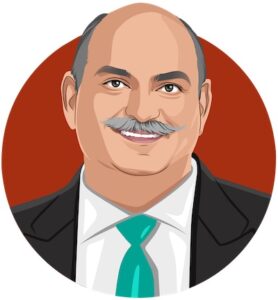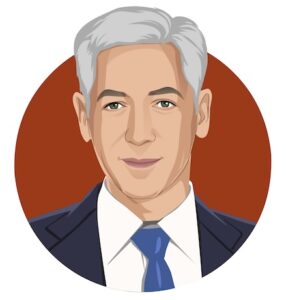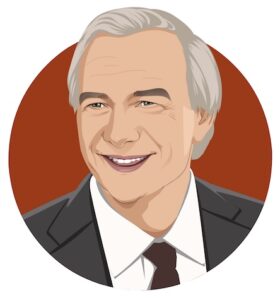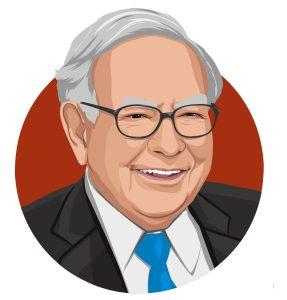
Howard Marks: Value matters more than quality
In this interview, Howard Marks shares his investment philosophy and lessons learned over his 55-year career, including contrarian investing, value versus quality and the inevitable market cycles.
You are here: Home || InvestorNews || Page 2

In this interview, Howard Marks shares his investment philosophy and lessons learned over his 55-year career, including contrarian investing, value versus quality and the inevitable market cycles.

In this interview at the 2025 MOI Global, Mohnish Pabrai shares insights on his investment philosophy and current market perspectives. The conversation covers various industries and investment approaches, with particular focus on cyclical businesses and special situations.

In his recent 2024 letter to shareholders, François Rochon provides a comprehensive overview of the firm’s investment philosophy, performance, and market outlook.

In his recent memo, Howard Marks discuss the current state of the credit market, focusing on high-yield bonds and the implications of narrow yield spreads. Howard emphasizes that while spreads are important, total returns are what ultimately matter for investors.

In this interview, Mohnish Pabrai shares his investment philosophy and life lessons. Using personal examples from his investment career, he demonstrates how major setbacks – including a large loss in a startup before launching his fund and the significant portfolio decline during the 2008 financial crisis – ultimately strengthened his investment approach and led to substantial gains afterward.

In their recent report ‘First Eagle Reflections’, the team at First Eagle outlines key market developments and future expectations, focusing on macroeconomic trends, sector performance, and notable companies.
Their insights highlight the dynamic nature of the global economy and the importance of strategic positioning across sectors and geographies.

In his 2025 Annual Investor Presentation, Bill Ackman provides his view on Pershing Square Holdings (PSH) strategic roadmap. Bill also shares his in depth thoughts on the portfolio and key business developments in the companies he owns such as Nike, Brookfield and Uber.

In this interview, British investing icon Terry Smith, the manager of the UK’s largest stock fund Fundsmith, shares his lessons after a lifetime of investing. Terry delves into the skills, personality traits, and principles that propelled him from humble beginnings to the top of the investing world.

In his recent article, NYU professor Aswath Damodaran discusses the disruptive entry of DeepSeek, a Chinese AI company, into the artificial intelligence (AI) landscape and its implications for the broader AI narrative.

In this article, AQR assess the assumption built into today’s market and what that likely will mean for forward returns. These insights aim to guide investors in setting realistic medium-term (5-10 years) expectations while emphasizing the importance of valuation discipline and diversification in navigating compressed risk premia across asset classes.

In this insightful podcast, Howard Marks, co-founder of Oaktree Capital, and Guy Spier, founder of Aquamarine Capital, share timeless investment wisdom. The discussion delves into essential principles for successful investing, including understanding market cycles, practicing second-level thinking, managing risk, and adopting long-term, contrarian strategies.

In this interview, Ray Dalio highlights that while investors often prioritize buying great companies, they frequently neglect the critical factor of pricing, which can transform even a great company into a poor investment if it’s overvalued.

In this interview, Cliff Asness addresses the difficulty of assessing an investment strategy during challenging times. He cautions against two extremes: abandoning a strategy prematurely due to short-term losses or rigidly clinging to it without adapting when needed.

In this interview, NYU professor Aswath Damodaran highlights that both life and investing are inherently uncertain, making it impossible to predict or control everything. This uncertainty often makes people uncomfortable, leading them to either ignore it or seek answers from others.


In this interview from 2008, Warren Buffett shares his insights on investing, the economy, personal happiness, and broader societal issues. The conversation offers a deep dive into his philosophy on business, life, and decision-making.

In this 2024 annual letter, Matthew McLennan and team reflects on a year marked by concentrated equity market performance, macroeconomic challenges, and geopolitical shifts. They emphasizes the importance of diversification, value-oriented investing, and hedging against uncertainty in an evolving global landscape.

In his annual letter to shareholders, Terry Smith argues that passive funds function as momentum strategies, creating a self-reinforcing cycle that inflates large-cap stock valuations.

In a recent interview with Barron’s, value investor Christopher Davis delves into two critical investment considerations: identifying the right businesses to own and determining the appropriate price to pay for them.

In this interview, Francois Rochon, CIO of Giverny Capital, discusses how a handful of dominant companies—such as Amazon, Apple, Microsoft, and Nvidia—have significantly influenced the S&P 500’s performance in recent years. Their rapid growth has increased their weighting in the index, encouraging more investors to adopt indexing strategies, which further reinforces their dominance.

This is the first interview Li has accepted with domestic Chinese media after four years. In the interview, Li recalled his mentor Munger, summarized his spiritual legacy, and pointed out that it was Munger who made value investing possible in the global practice.

In this interview, Christopher Bloomstran, CIO of Semper Augustus, offers a wealth of insights into value investing, ethical business practices, and the critical role of patience and trust in achieving long-term success in both investing and life.

Matthew McLennan provides insights into navigating volatile markets with a focus on resilience and strategic asset allocation.

Jamie Lowry, Managing Director of UK based Hamblin Watsa Investment Council, was the Keynote Speaker at the Ben Graham Centre’s 4th European Value Investing Conference where he provided a deep dive into to topic “The Management of Value”.

In this interview with Jason Zweig, the editor of the 75th anniversary edition of Benjamin Graham’s classic book ‘The Intelligent Investor’, he discusses Graham’s timeless principles for successful investing.